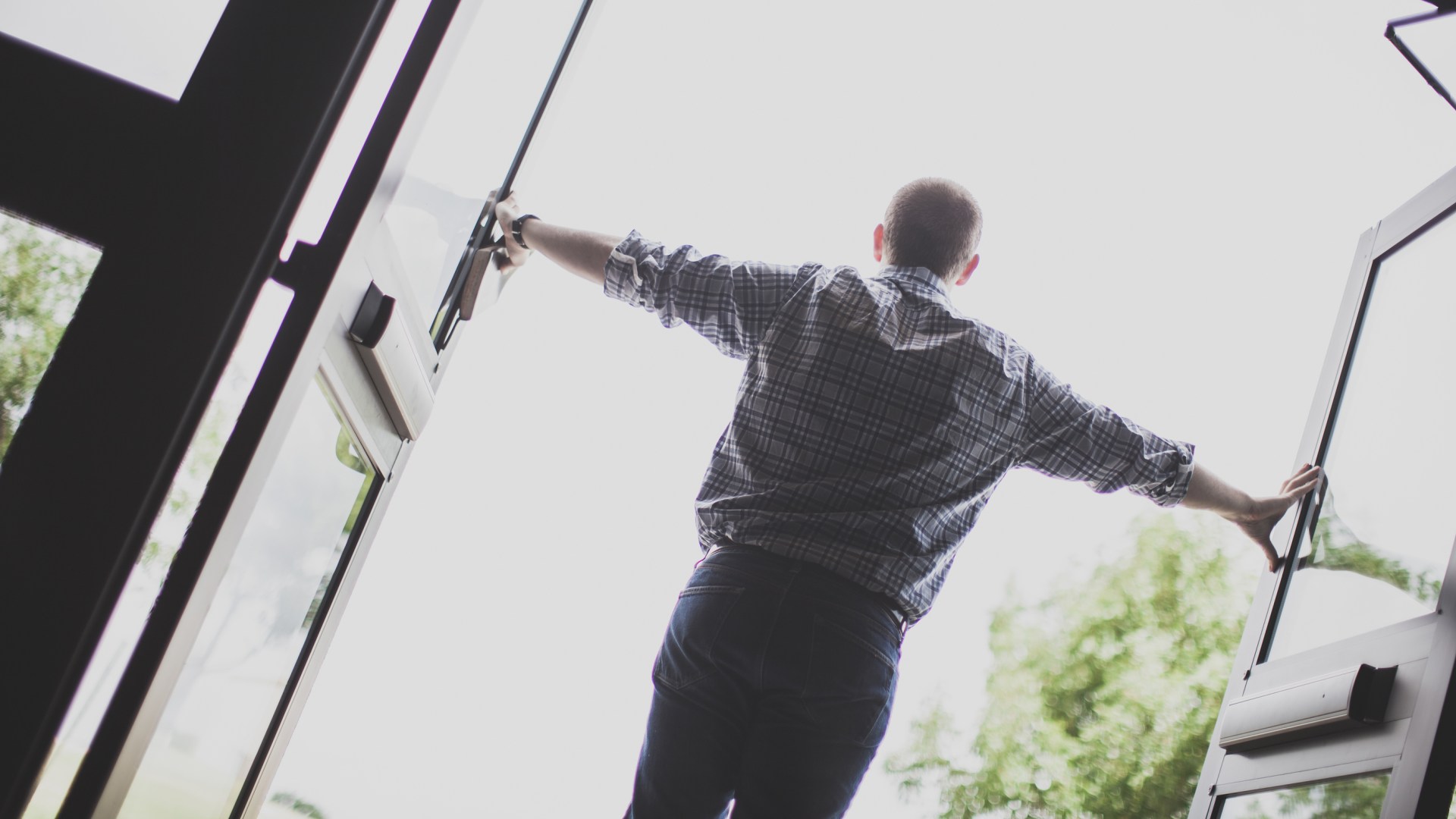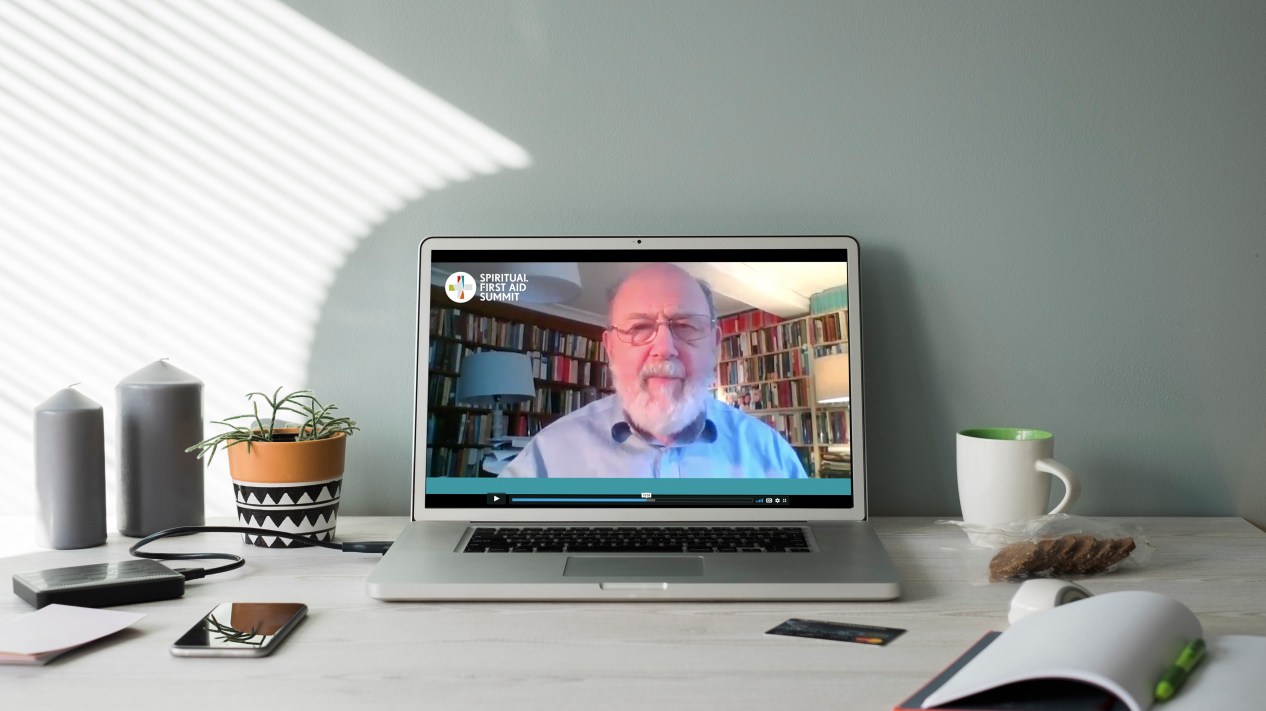Over the past few months, many of us have been waiting for the moment that our churches reopen their doors and we can gather together again in person. As many states slowly begin the process of reopening, churches face a new kind of challenge: deciding when and how to return to their buildings and, once there, how to adapt traditional practices for ongoing safety.
Last week, HDI held our first in a series of webinars on the topic of Considering When and How to Reopen Your Church, in partnership with the National Association of Evangelicals. We gathered a team of experts in a Town Hall format to frame the conversation and speak directly to the pressing questions as we enter this new phase, including:
- Dr. Walter Kim, president of the National Association of Evangelicals and pastor of Trinity Presbyterian Church in Charlottesville, Virginia
- Pastor Michael Henderson, vice president of national ministries, Converge Worldwide
- Dr. Nicolette Louissaint, executive director, Healthcare Ready and former Senior Advisor to the State Department’s Special Coordinator for Ebola
- Rev. Dr. Miriam Burnett, founder and president of Resources and Promotion Health Alliance, Inc., pastor of Historic Jones Tabernacle AME Church in Philadelphia, Pennsylvania, and leader of the Health and Healing Guidepost Committee and Disaster Preparedness and Response Committee for the Philadelphia Annual Conference
- Christopher Nelson, Director of Business Development at Gloo
They helped us to start thinking about how we might approach how and when to start to reopen our churches. Here are some of the their insights on the most important things churches need to consider as they make decisions on when and how to reopen:
We need to consider challenges theologically.
“The guideline to reopen is not the same as a command to reopen. If it's a guideline and not a mandate, then we need some further principles to help govern our thinking. I encourage us to read Romans 13 which deals with governing authorities and obeying our governing authorities, and the second section, which talks about ‘love does no harm to the neighbor.’ One of the principles we're going to have to consider as we reopen is being right before God with the best information we have available. We need to follow government recommendations and also go beyond and seriously think about the mandate not to do harm to others.
I know the church I lead right now will have very different sensibilities among congregants. I would encourage us to think about the principle of love as an expression of preserving the conscience and sensitivities of others. It may be okay for us to open up, but if we are putting others in a place of insecurity, of vulnerability, then we need to seriously consider our responsibilities to other members of our church that may not be ready to open up. It’s a very complicated thing to live out the command to love. It's easy to say it's about love, but living it out is nuanced and it requires a lot of humility and dialogue in order to fulfill.” — Dr. Walter Kim
We need to consider how our decisions will impact vulnerable populations.
“What about African-Americans, African diaspora, all across the world who are still dealing with health inequities, which have made as many as 80% of a population more vulnerable? How do we deal with our seniors who are the ones that are going to drive the issue, but also cannot deal with the things that we have to do in order to prepare our sanctuaries as well as make sure that we are maintaining them?” — Rev. Dr. Miriam Burnett
“The pandemic, or any other disaster, does not impact everyone equally because the system does not impact everyone equally. So when we're thinking about who is already vulnerable and who could be made more vulnerable in the reopening process and what does that actually mean for their lives—what does it mean for someone to be able to rejoin communion with one another in a way that is safe and in a way that actually augments and improves their overall health and doesn't take away from it?” — Dr. Nicolette Louissaint
We need to consider input from our people.
“How do we know the state of our church? Almost weekly—hourly—things are changing. We started with the Pastor Poll a few weeks back, asking pastors, ‘How are you?’ And we've had thousands of responses each week. It's been fascinating to see what's important now, and then also what's coming, by asking some of these questions. When we started analyzing data based on size of the church, we really started seeing some differences based on the average worship attendance and what churches were doing based on their size.” — Christopher Nelson
We need to consider social distancing practices.
“We can't just tell people to socially distance. We need to be concrete and let them know what that actually means—maybe that's even tape on the ground. You've probably even seen in the last couple of weeks, people don't always judge that distance well, so we have to be as concrete and specific as possible.” — Dr. Jamie Aten
We need to consider communion.
“We have to stop and ask ourselves if the way we used to do things is the way we should do them going forward across the board. And that includes when we're thinking about something like the Lord's Supper. I don't know how we get back to what we did in the past. One thing I've seen some churches do is mail those pre-packaged wafers and glasses to people's homes. If you are plate deciding how far people can sit from one another and they're socially distancing in the pews, then you would be placing them actually at those seats. From my view, anything else is too risky at this point. Until we have a vaccine, I think we should be maintaining those practices of distance and precaution.” — Dr. Nicolette Louissaint
“What we are proposing is yes, use the pre-packaged kits. Either have the pre-packaged kit already at the seat that we're using, because that reinforces the fact that we have distanced and set aside the space that we will be using for seating. The other option is to have one or two people, depending on church size, assigned to the entryway: one way in, one way out. Not closing those off because of fire regulations, but asking people to use one door for entry and one door for exit. And then handing out the kits as they enter.” — Rev. Dr. Miriam Burnett
We need to consider long-term financial realities.
“Most churches are telling us that right now their offerings are great, people are giving online. We thank God for the increase in online giving, but think about it this way: most of us don't have a whole lot competing for our dollars right now. People are not going on vacations. They're not traveling a whole lot. They're not going to the mall. We're sheltered in place. So we're asking our churches to think through what this will look like after the states open up and those dollars, now we're competing again. So what does that mean for our budget? Will that mean a shifting of staff members?” — Pastor Michael Henderson
We need to consider how to handle children’s ministry.
“One of the things that we're looking at is for the foreseeable future, as churches return, to recommend that for a short season, they set down children's church and worship together as families. It will be a challenge, but children are so vulnerable, and I think if something happened to someone's child, I don't know that that church would ever recover. So we've taken the approach, for at least the foreseeable future, to look at shutting down children's church, doing something online through the week, and if people are going to come to physical worship when we do resume worship, to have families worship together.” — Pastor Michael Henderson
We need to consider how people are experiencing grief and loss during COVID-19.
“Keeping lines of communication open helps us see the concerns of people and identify their sense of loss. We need to understand that when people grieve, there are big and little griefs, such as the griefs of loss of human connection, of the loss of being able to volunteer in the way that you always look forward to, or of being part of hospitality. This debate that we may encounter within our churches, underneath it is the journey of helping people grieve through all of sorts of losses, big and small—to name it, to listen to it, to care for it. That is a profoundly important posture that leaders and pastors should be taking.” — Dr. Walter Kim
For more resources on considering these questions and more—including our new manual, Guide to Reopening Church Services: A Step-by-Step Biblically-Based and Research-Based Approach to Resuming In-Person Ministries—visit reopeningthechurch.com.
Jamie Aten, Ph.D., is founder and executive director of the Humanitarian Disaster Institute at Wheaton College. Follow on Twitter at @drjamieaten or visit jamieaten.com.
Kent Annan, M.Div., is director of Humanitarian & Disaster Leadership at Wheaton College. Follow on Twitter at @kentannan or visit kentannan.com.
Posted Pearl / Lightstock
Pearl / Lightstock 

